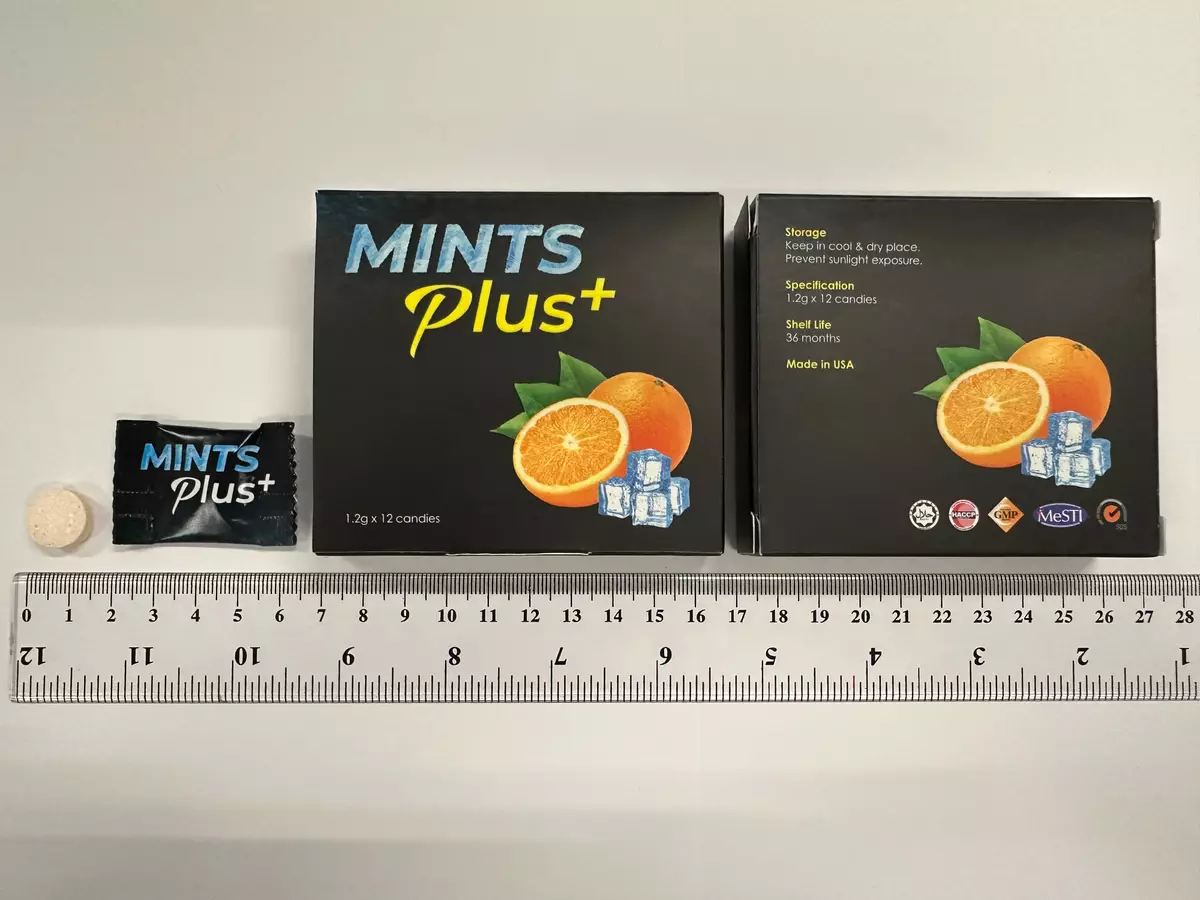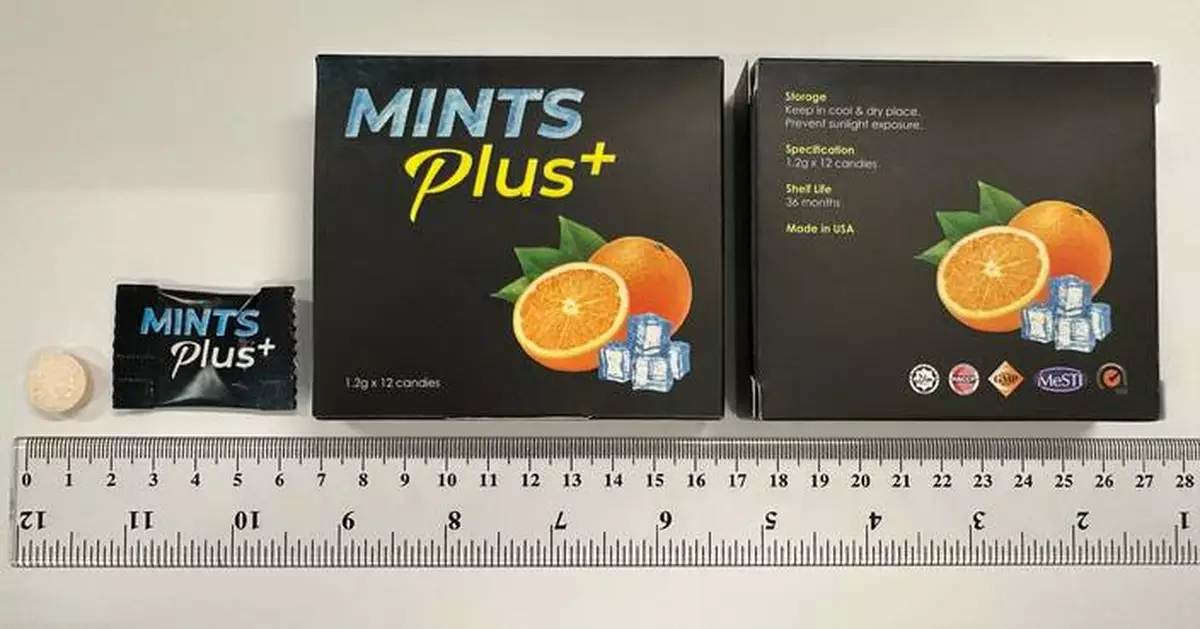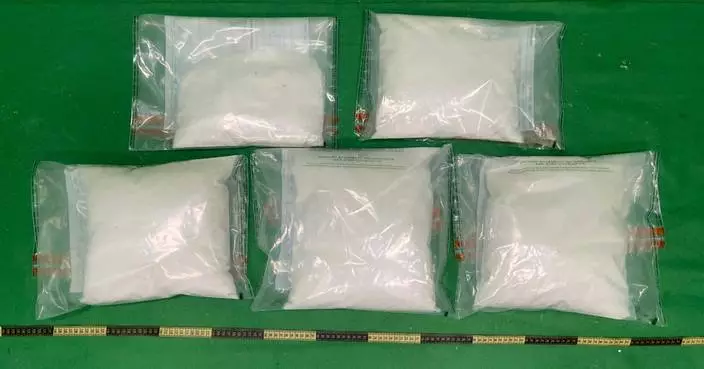DH urges public not to buy or consume product called MINTS Plus+ with undeclared controlled drug ingredient
The Department of Health (DH) today (December 12) urged the public not to buy or consume a product called MINTS Plus+, packaged as a candy, as it was found to contain an undeclared controlled drug ingredient. Improper use can pose serious health risks, especially to patients with heart problems.
Acting upon a public complaint, the DH obtained a sample of the product via an online social media platform for analysis. The test results from the Government Laboratory revealed that the sample contained tadalafil, which is a Part 1 poison under the Pharmacy and Poisons Ordinance (Cap. 138) (the Ordinance). The product is not a registered pharmaceutical product in Hong Kong and cannot be sold in the market. The test results also revealed that the level of tadalafil in the sample exceeded its usual daily dose.
The DH is continuing to investigate the incident.
Tadalafil is a prescription drug used for treatment of erectile dysfunction, and should only be used under a doctor's advice and be supplied in a pharmacy under the supervision of a registered pharmacist upon a doctor's prescription. Side effects of tadalafil include low blood pressure, headache, vomiting, dizziness and transient vision disturbances. It may interact with some drugs (such as nitroglycerin for treatment of angina) and cause a decrease in blood pressure to dangerous levels. Improper use of tadalafil can pose serious health risks, especially for patients with heart problems.
According to the Ordinance, all pharmaceutical products must be registered with the Pharmacy and Poisons Board of Hong Kong before they can be legally sold in the market. Illegal sale or possession of unregistered pharmaceutical products or Part 1 poisons are criminal offences. The maximum penalty for each offence is a fine of $100,000 and two years' imprisonment.
The DH spokesman strongly urged members of the public not to buy or consume products of unknown or doubtful composition, or from unknown sources. All registered pharmaceutical products should carry a Hong Kong registration number on the package in the format of "HK-XXXXX". The safety, quality and efficacy of unregistered pharmaceutical products are not guaranteed.
Members of the public who have purchased the above product should stop consuming it immediately. They should consult healthcare professionals for advice if feeling unwell after consumption. The public may submit the products to the Drug Office of the DH at Room 1804-1806, 18/F, Wing On Kowloon Centre, 345 Nathan Road, Kowloon, during office hours for disposal.
The public may visit the webpage of the DH's Drug Office's page for the health message on sexual dysfunction and virility products and virility products found to contain undeclared Western medicines.

DH urges public not to buy or consume product called MINTS Plus+ with undeclared controlled drug ingredient Source: HKSAR Government Press Releases







